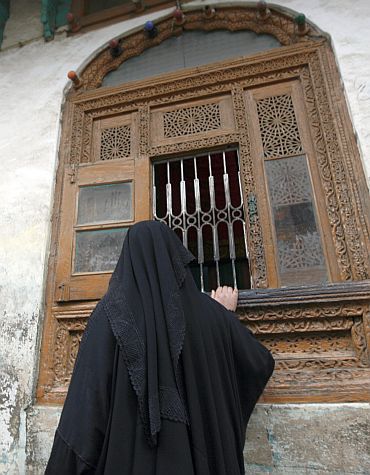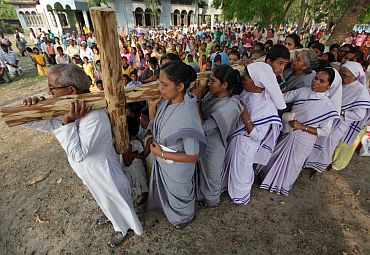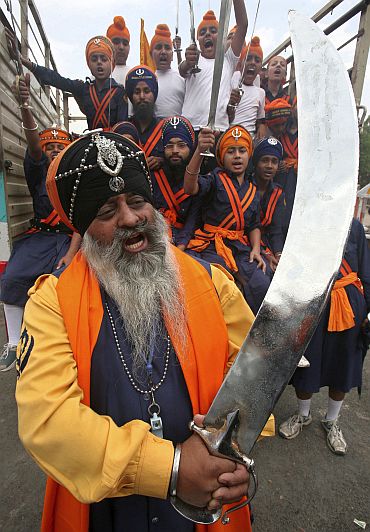
India is among the countries, which have been put on the 'Watch List' of a bipartisan US panel on global religious freedom, which termed its progress in protecting the rights of minorities as mixed.
Putting India on the 'watch list' for the second year in succession, the US Commission for International Religious Freedom (USCIRF) in its report said the Indian government at various levels recognised the problem of communal violence and created some structures to address these issues.
"However, justice for victims of communal violence was slow and often ineffective, thereby perpetuating a climate of impunity.
"While there was no large-scale communal violence against religious minorities during the reporting period, attacks on Christians and Muslims and their places of worship continued, along with incidences of intolerance against both," it said.

However, placing India on the 'Watch List' for the second year in succession by the Commission was not unanimous.
One of the prominent members of USCIRF, Commissioner Felice D Gaer, USCIRF Chair last year, has written a long dissent note against such a decision of the body, which released its annual report running into more than 370 pages.
The recommendations of USCIRF are not binding on the US government.
Notably, the members of the Commission were unable to visit India to have a spot assessment of the ground realities as they could not obtain a visa for the purpose -- for the second consecutive year.

"Among its numerous policy recommendations, USCIRF urges the US government to integrate concern for religious freedom and related human rights into all bilateral contacts with India, and for US ambassador to India to speak out against, and seek to visit sites of, communal violence," the report said.
"The Commission attempted to visit India, but no visas were granted," it said.
In November 2009, USCIRF wrote to US President Barack Obama, urging him to raise religious freedom concerns when meeting Prime Minister Manmohan Singh.
The letter, while noting the stated commitment of the Congress Party to religious tolerance, called attention to the Indian government's inadequate responses to violence against religious minority communities, including Christians in Orissa in 2008 and Muslims in Gujarat in 2002.
Meanwhile, writing his note of dissent on the decision taken by USCIRF, Gaer said: "The Commission's conclusion that the system's 'capacity and will is severely limited' and that government response to such incidents has been 'largely inadequate' seems to fly in the face of the evidence of serious measures that have been undertaken".

Gaer argued the response of the Indian government during the past year have been significant, citing amendments to the Code of Criminal Procedure, establishing fast track courts to take up cases in Orissa, appropriating of funds for rebuilding and paying compensation to victims or the families, and to permitting a 10-country delegation of the European Union to travel to the region for a first-hand examination.
"I respectfully dissent from the decision to recommend that India be placed on the Commission's Watch List of countries with egregious, severe violations of religious freedom that fall short of the statutory requirement for countries of particular concern," Gaer said.
The Commission has placed Pakistan, Burma, North Korea, Iran, Iraq, China, Saudi Arabia, Sudan, Turkmenistan, Uzbekistan and Vietnam in its top category of 'countries of particular concern'. At the same time it is closely monitoring Bangladesh, Kazakhastan and Sri Lanka.
"This year's report offers new and important policy solutions to improve conditions where foreign policy, national security, and international standards for the protection of freedom of religion can and should intersect."
"The report's conclusion is clear -- the Administration must do more!" said Leonard Leo, USCIRF Chair, in a statement.